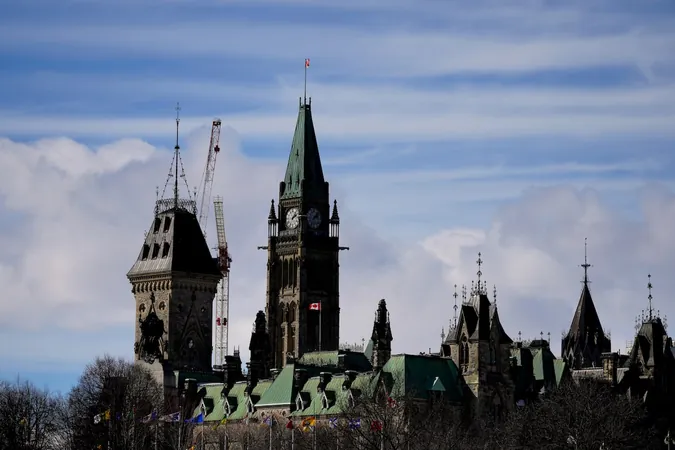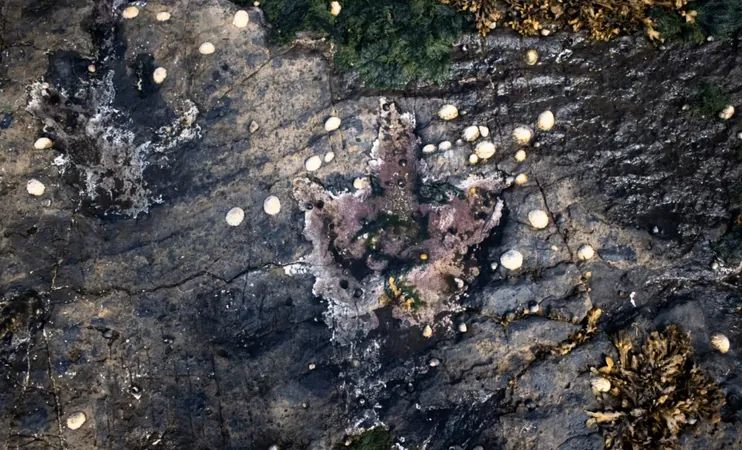
Canada’s Largest First Nation Takes Legal Action Over Unsafe Drinking Water
2025-04-13
Author: Amelia
A Fight for Clean Water Begins
Canada's largest First Nation, Six Nations of the Grand River, is launching a major lawsuit against the federal government over its inadequate and unsafe drinking water systems. The community, located in Ontario's densely populated Greater Golden Horseshoe, is demanding immediate action and a hefty $25 million in compensation.
A Shocking Water Crisis
While millions in the region enjoy access to clean drinking water, Six Nations grapples with a troubling reality: only 30% of its 13,000 residents benefit from a modern water-treatment facility. The remaining 70% rely on a patchwork of unmonitored wells and cisterns, which have repeatedly tested positive for harmful bacteria. This puts residents at risk of gastrointestinal illnesses, skin infections, and respiratory issues, as detailed in their legal claim.
A Promised Solution That Fell Short
The federal government has yet to respond to the allegations as the matter awaits trial. In a statement, Indigenous Services Canada acknowledged the community's right to seek legal remedies for safe water. Previous promises made by former Prime Minister Justin Trudeau aimed to eradicate long-term drinking water advisories on First Nations by 2020, a goal that remains unmet.
Settlements and Disappointments
In 2021, Ottawa settled lawsuits related to drinking water advisories for about $8 billion. However, Six Nations was unable to qualify for these funds due to a strict eligibility criterion. Many First Nations, including Six Nations, still lack safe drinking water despite their persistent struggles.
Financial Burden on Residents
For residents like Professor Dawn Martin-Hill, the water crisis is both a health risk and an economic burden. Many homes, including hers, depend on cisterns filled by trucks, costing families around $250 monthly, not counting initial installation costs of approximately $65,000. This financial strain on households exacerbates the community's frustrations.
Political Promises Fade Away
In 2023, a significant bill was introduced to recognize safe drinking water as a basic human right for First Nations but was shelved following parliamentary prorogation. Political leaders have pledged improvements, yet many are skeptical after years of unmet assurances.
Demand for Immediate Action
Frustrated by a lack of progress, Six Nations is demanding an injunction to force the government to address unsafe drinking water and sewage issues urgently. Professor Martin-Hill laments the ongoing challenges, stating, "The holdup is the federal government not providing the resources we need to ensure we have clean water and waste management comparable to our neighbors." The lawsuit underscores a community that has lost patience with empty promises and demands real action.









 Brasil (PT)
Brasil (PT)
 Canada (EN)
Canada (EN)
 Chile (ES)
Chile (ES)
 Česko (CS)
Česko (CS)
 대한민국 (KO)
대한민국 (KO)
 España (ES)
España (ES)
 France (FR)
France (FR)
 Hong Kong (EN)
Hong Kong (EN)
 Italia (IT)
Italia (IT)
 日本 (JA)
日本 (JA)
 Magyarország (HU)
Magyarország (HU)
 Norge (NO)
Norge (NO)
 Polska (PL)
Polska (PL)
 Schweiz (DE)
Schweiz (DE)
 Singapore (EN)
Singapore (EN)
 Sverige (SV)
Sverige (SV)
 Suomi (FI)
Suomi (FI)
 Türkiye (TR)
Türkiye (TR)
 الإمارات العربية المتحدة (AR)
الإمارات العربية المتحدة (AR)